Creation: Question Evolution Campaign — 4 of 15

A Sunday guest post by my brilliant husband, Gregg.
Every Sunday, my clever husband offers me a “day of rest” by taking over the homemaker duties here. His primary topic, the Biblical Truth of Creation vs. Darwinism, is a subject that has broad reaching scientific, social, and metaphysical implications and is gaining more and more attention in our modern culture. For believers and non-believers alike, the primary purpose is to present scientific, historical, logical, and/or sociological data in an empirical and defensible fashion, as much as possible written in layman’s terms, and in a format suitable for supplementing any homeschool curriculum whether you choose to believe the Biblical account — or secular guesses — about the origins of human life on earth.
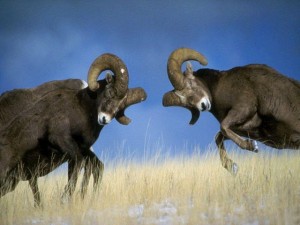
Is Natural Selection Really Darwinian Evolution?
Question number 4 in Creation.Com’s Question Evolution Campaign is, “Why is natural selection, a contradictory and subjective principle that is nevertheless recognized by believers in the Biblical account of creation, taught as ‘evolution’, as if natural selection explains the origin and the diversity of life?”
By definition, natural selection is a selective process (selecting from already existing information), so it’s automatically not a creative process. While it might in very specific cases under narrowly and subjectively defined parameters explain the survival of the fittest (why certain genes benefit creatures more in certain environments), natural selection is not any kind of explanation for the arrival of the fittest (where the genes and creatures came from in the first place).
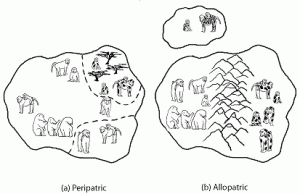
What is Natural Selection?
Natural Selection is generally defined as the process whereby organisms better adapted to their environment tend to survive and produce more offspring. Darwinists arbitrarily apply the term to both peripatric and allopatric speciation events.
Suppose a bunch of monkeys were isoloated from the main group and they continued to bring forth within their kinds seperately. Eventually, they might look different and Darwinists would claim they were seperate species. Somehow, they rationalize equivocating this very obvious and perfectly normal process with natural selection. I suppose because this is actually observable and quantifiable in the field of operational science.
Anyway, natural selection is often referred to as the principle of the survival of the fittest. The iconic demonstration of this principle in action is when the ram mountain goats fight each other for the right to breed with nanny goats. But is this principle of the survival of the fittest really even the case in all circumstances?
After all, how do you know which organisms are the fittest? Well, that’s easy. The fittest are the survivors. Right?
Or is that too circular and absent logic even for the most ardent Darwinist?
Consider the following scenarios and ask how well this principle applies. Should we rename it to something more appropriate and descriptive?
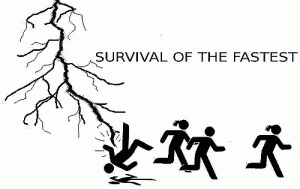
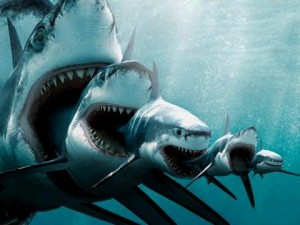
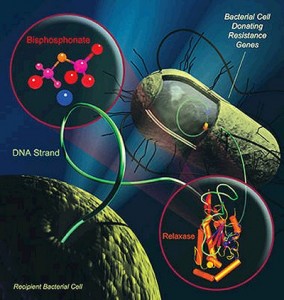


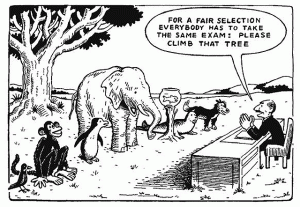
What is in dispute is that natural selection by itself generates absolutely no new genetic information. It cannot be said to be a causefor the type of macro-evolution Darwinists claim commonly occurs that would require the infusion of massive amounts of highly specific and specifically complex information into the genes. Natural selection does not do that. It only ever successfully reduces the amount of information present in the genes.Any adaptations that are purely the result of natural selection acting on pre-existinggenetic information are not changes in the right direction to drive primordial ooze to become astronomers. Therefore — and this is the very easy part for folks who either possess common sense or are not afflicted with Darwinism or both– natural selection is not the same thing as “evolution” in the way Darwinists would like that much more grand process defined.
Equivocation
One major problem, of course, is that while some Darwinists privately admit that natural selection cannot account for large scale evolution ala pond scum to people, most lapse into equivocation. They use the terms evolution and natural selection interchangably, as if one equals the other.
In theory, Darwinists look to mutations as being responsible for generating the new genetic information required, which new information is then sorted by natural selection.
In reality, does that ever even really happen? And the answer, of course, is no.
Whenever asked to provide specific evidence or even theoretical examples of any mutations that increase the information in the genome, Dawkins and similar atheist/secular humanist cohorts of his ilk cannot provide even a single coherent answer or point to a single documented case. By now, Darwinists ought to be able to point to hundreds of examples of such mutations. But they can’t. There is a tiny handful —- one or two at best -— which could even possibly represent a modicum of information increase, and the lead candidate, the ability of a single strain of laboratory grown bacterium to digest the man-made substance nylon, involves considerable doubt.
There is, in effect, no smoking gun. There isn’t even a burnt out matchstick.
For more information about question number four, visit creation.com/defining-terms.
The Truth
The truth is that to believe in the Darwinist myth, there is only one thing a person must accept as patently impossible. It isn’t impossible, believes the Darwinist, that the universe was a bunch of nothing that decided to create everything one day. It isn’t impossible, believes the Darwinist, that “proto-stars” can explode over and over until they become actual stars. It isn’t impossible, believes the Darwinist, that they can explode so often and so hot that they can fuse past mass gap 3 or 8. It isn’t impossible, believes the Darwinist, that the laws of nature can be utterly ignored with respect to the orbits of planets and stars and the placement of moons and galaxies. It isn’t impossible, believes the Darwinist, that dirt and rocks can decide to create a living cell. It isn’t impossible, believes the Darwinist, that mutation and other assorted malignant and reductive processes can infuse unbelievable amounts of specific and complex information into living things.
In fact, the only thing a Darwinist ardently claims is impossible is that God might actually exist.
But He does. God exists as surely as other non-material things such as thought, consciousness, information, love, and hope. It is not a gigantic leap of faith to understand that God created the universe and it belongs to Him along with everything and everyone in it. It takes considerably more faith to believe in the patent impossibilities that Darwinism requires.
I commit to you that I will publish every single comment that meets this blog’s commenting criteria. You may want to review that criteria before adding your opinion here.
God Bless you and yours.
Gregg
Resources:
Additional Posts dealing with Creation and Darwinism


I do not know any darwinists. I know tons of people that think evolution is a viable theory, but no one, well very very few people actually think that darwin’s ideas are really the true one. Catholics “believe” in evolution. They believe that God created the earth and that Evolution is a reasonable theory.
The man who came up with the whole “big bang theory” was religious, i think a priest. In fact many scientists think that the theory is too religious, too “let there be light”ish.
I take offense at how you must draw a line between good religious people and scientists who think that there might exist a method to how things came to be. I also would love to hear your thoughts, on how it came to be, because every time you leave us thinking that you believe in magic. God said it happens and abracadabra, there it is. I personally think much more of God.
…” “Why is natural selection, a contradictory and subjective principle that is nevertheless recognized by believers in the Biblical account of creation, taught as ‘evolution’, as if natural selection explains the origin and the diversity of life?”
.
Seriously? This question is a straw man. Natural selection by itself is not taught as evolution.
.
…”They use the terms evolution and natural selection interchangeably, as if one equals the other.”
.
Untrue and straw man. If you think they do, you are ignoring context.
.
…”while some Darwinists privately admit that natural selection cannot account for large scale evolution ala pond scum to people, most lapse into equivocation. ”
.
Again, evolutionary biologists do not claim that natural selection alone can cause diversity. You’re misrepresenting what biologists say and then suggesting they are dishonest. Another straw man.
.
…”In theory, Darwinists look to mutations as being responsible for generating the new genetic information required, which new information is then sorted by natural selection.”
.
Yeah, and also in fact. Mutations plus population factors like genetic drift. Whether you don’t believe mutations can be the source of variation doesn’t change the fact that evolutionary biologists think they do.
.
…” Ultimately, nature is not something that has a mind or a will and has no actual ability to select. To confer such an ability upon nature is to commit the fallacy of reification by lending nature such misplaced contretism.”
.
Another straw man. Of course biologists don’t assume that nature has a mind or will.
.
…”Natural Selection is generally defined as the process whereby organisms better adapted to their environment tend to survive and produce more offspring.”
.
This seems reasonable. And chance is a factor. So why do you portray biologists as somehow blindly clinging to some limited definition of the phrase ‘survival of the fittest’ that you can mock them? You can’t have it both ways.
.
…”Suppose a bunch of monkeys were isolated from the main group and they continued to bring forth within their kinds separately. Eventually, they might look different and Darwinists would claim they were separate species. Somehow, they rationalize equivocating this very obvious and perfectly normal process with natural selection.”
.
This is confusing. Natural selection IS a very obvious and perfectly normal process. You don’t think so? I thought you did.
Your small group of monkeys isolated from the main bunch might have a different percent of some alleles by chance than the group as a whole. So a trait included at a low frequency in the main group might become more prevalent in the second group. And over time, mutations that occur and are passed on in the second group would be different from those that occur and are passed on in the first group if the two groups are reproductively isolated.
If they just looked different but still could reproduce with the main group they would probably not called a new species. They might be called a subspecies. They would be called a new species if over time barriers to reproduction with the original group occurred. The definition of the label of ‘species’ and when to apply it is not easy or exact.
You have not described an example of natural selection. It is an example of the founder effect or a genetic bottleneck.
.
Monsignor Georges Henri Joseph Éduard Lemaître (July 17, 1894 – June 20, 1966), a Belgian Catholic Priest, struck on the basic idea in 1927. I wrote about this in 2009 in this post.
.
“Big Bang” describes magical occurrences. There was nothing that got dense, spun, got hot, and exploded creating everything. That’s pretty magical.
.
Not sure what you think of God if your God is not all powerful, omnipotent, transcendent, eternal, and infinite. For the record, that is the God I believe in. That God could very easily have created the entire universe and everything in it including time a few seconds ago complete with memories and hopes and dreams. The only reason I know He didn’t is because He explained how everything was created in very clear language.
.
The kind of macro-evolutionary pipe dreams espoused by died in the wool Darwinists such as Dennet and Dawkins are entirely unreasonable and impossible.
.
Thanks for your comment,
Gregg
Okay — so to the straw man contention.
.
Since it apparently NEVER happens, then if I show just ONE example that the terms “natural selection” and “evolution” are used interchangeably in a Darwinist mainstream venue, that refutes your straw man accusation entirely. Correct?
.
Is it your claim that this is simply NEVER done? Thus one mere example refutes it. Or do you require more than one example? Is it, in fact, common enough that I must cite several?
.
Let me know what would satisfy you in terms of evidence.
By the way, none of what you stated in your comment addresses the fact that “natural selection” whether broadly or narrowly defined, cannot and does not produce any new genetic information.
I think I did, in this section where I quoted some of your text and added a comment:
.
…”In theory, Darwinists look to mutations as being responsible for generating the new genetic information required, which new information is then sorted by natural selection.”
.
Yeah, and also in fact. Mutations plus population factors like genetic drift. Whether you don’t believe mutations can be the source of variation doesn’t change the fact that evolutionary biologists think they do.”
.
You can post what you want and I’ll look at them, but really, I think you’d be wasting your time. People don’t always speak or write precisely. If a person has gone over the basics or expect the audience to know the basics, then that person might be casual with wording; context matters. Some people are uninformed and some people have fringe ideas. The basic consensus on evolution in biology, that is in the textbooks and in the journals etc, is that natural selection acts on genetic variation, and new genetic variation is a result of mutations.
Some single quote doesn’t make a difference to that.
.
There are other statistical effects besides natural selection which can affect the percent of some alleles in a population. And some natural events may affect the mutation rate which could be an indirect effect on genetic information. Any new genetic information )in the sense of a change in sequence) has to be a result of mutation. Whether it spreads through the population is affected by natural selection (for instance if a mutation changes the color of a bird, will other birds be more likely or less likely to choose that bird as a mate). In that way natural selection affects what genetic material is present in the population for subsequent mutations to influence, but the actual change in the genetic sequence is through mutation, not natural selection. (typing this is a rush so it is not carefully written; hope it is clear.0
I would only rephrase to say that evolutionary biologists “believe” or “have faith” or “earnestly hope” that they do. There is no evidence, after all, that they can or do.
adding this…
The CMI question as posted above is this:
…”Why is natural selection, a contradictory and subjective principle that is nevertheless recognized by believers in the Biblical account of creation, taught as ‘evolution’, as if natural selection explains the origin and the diversity of life?”
.
The sentence above says ‘taught’. From the wording of this sentence, the implication is that natural selection is normally, maybe even always, taught that way. I answered that implication, that the standard approach is to teach evolution as being equivalent with only natural selection, nothing about mutations as a source of genetic variation.
An example of the two terms being used interchangeably is not enough to address the idea that the whole subject is normally *taught* that way as a standard approach. That goes beyond a few sentences; it would include a set of lectures, textbook chapters, and an organized approach to the subject.
(I can imagine that somewhere in this country there are biology teachers who are not up to speed on teaching their course material, and who get it wrong. But that doesn’t make it standard.)
I don’t understand why CMI included this question.